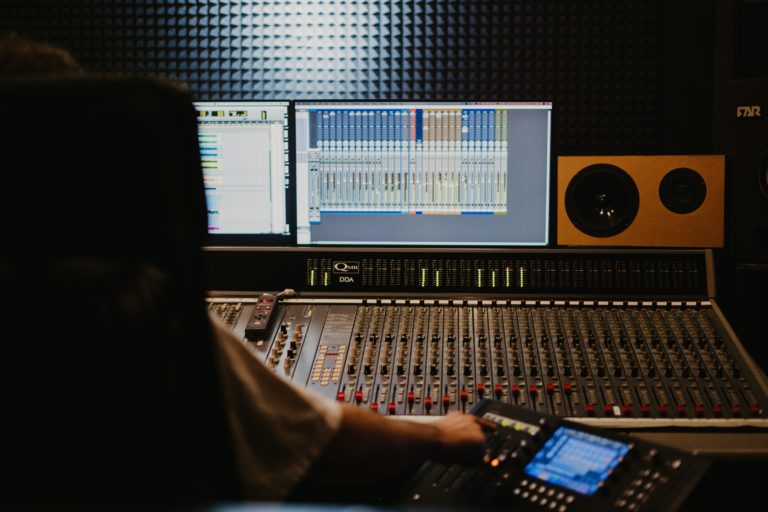As a Christian artist, your music has the power to inspire and uplift. However, making money from your talent can be challenging. While streaming platforms offer global reach, the revenue can be modest. Here, we’ll explore how you can generate income by focusing on your local audience and church community.
Understanding Streaming Revenue
Streaming platforms like Spotify and Apple Music are great for exposure. However, the revenue from streams can be minimal. For example, Spotify pays around $0.003 to $0.005 per stream. This means you need about 250,000 streams to earn $1,000. While streaming should be part of your strategy, it’s not enough on its own.
Leveraging Your Local Audience and Church Community
Host Live Events and Performances
Concerts and Worship Nights: Organize events at local churches or community centers. These can include:
- Ticket Sales: Sell tickets for these events to generate income.
- Merchandise Sales: Offer CDs, t-shirts, posters, and other merchandise.
- Donations: Encourage attendees to donate, explaining how their contributions support your ministry and music production.
Church Collaborations: Work with your church to host special music events. This can involve:
- Special Services: Perform during special church services or events, such as Christmas or Easter.
- Youth and Worship Nights: Host youth worship nights or special worship sessions. These can be ticketed or donation-based.
- Community Outreach: Participate in community outreach programs, performing at events that align with your message.
Support from Local Ministries
Reasonable Agreements: Offer your music for use in local church worship services and events. Work out agreements where churches support you financially for the use of your music. Offer flexible pricing based on the church’s size and budget.
Providing Resources: Make it easy for churches to use your music by providing:
- Stems: Separate tracks for each instrument and vocal part.
- Lyrics: Lyric sheets for projection or handouts.
- Practice Materials: Demo recordings and practice tracks to help church bands and choirs learn your songs.
Bundle Packages: Create bundles that include multiple songs, practice materials, and performance rights. Offer these at a discounted rate to encourage churches to purchase more.
Offer Music Lessons and Workshops
Individual Lessons: Use your skills to teach others. Offer lessons on instruments, vocals, or songwriting.
Workshops: Conduct group workshops on various aspects of music. This can include:
- Music Production Workshops: Teach the basics of music production, recording techniques, and using digital audio workstations (DAWs).
- Choir and Band Workshops: Help church choirs and bands improve their performances and musical arrangements.
- Youth Workshops: Engage with the youth in your community through music workshops, encouraging them to pursue their musical interests.
Crowdfunding and Donations
Patreon and GoFundMe: These platforms allow your fans to support you financially. Offer:
- Exclusive Content: Provide patrons with exclusive access to behind-the-scenes content, early releases, and special updates.
- Personalized Rewards: Offer personalized rewards like one-on-one virtual meetings, private performances, or custom songs.
- Community Involvement: Involve your patrons in your creative process, such as voting on song choices or album artwork.
Church Fundraisers: Partner with your church to organize fundraisers. This can include:
- Benefit Concerts: Host benefit concerts with the proceeds going towards your music ministry.
- Silent Auctions: Include items like private concerts, signed merchandise, or music lessons as auction items.
Sell Physical and Digital Products
Direct Sales: Platforms like Bandcamp allow you to sell your music directly. Offer:
- Digital Downloads: Provide high-quality digital downloads of your singles, EPs, or albums.
- Physical Copies: Sell physical copies of your music, such as CDs and vinyl records.
- Special Editions: Create special edition packages that include additional content like lyric booklets, exclusive artwork, or bonus tracks.
Merchandise: Create unique merchandise that resonates with your music and message. This can include:
- Apparel: T-shirts, hoodies, hats, and other apparel with your logo or artwork.
- Accessories: Items like mugs, tote bags, and phone cases that feature your branding.
- Music Gear: Branded guitar picks, drumsticks, or other music-related gear.
Engage on Social Media
Regular Content: Share behind-the-scenes content, live stream your creative process, and engage with your followers regularly. This can include:
- Live Streaming: Use platforms like Facebook Live, Instagram Live, or YouTube Live to perform live sessions, Q&A sessions, or studio tours.
- Storytelling: Share the stories behind your songs, your musical journey, and your faith to create a deeper connection with your audience.
- Fan Interaction: Engage with your fans by responding to comments, hosting giveaways, and encouraging user-generated content.
Promotions: Use social media to promote events, new releases, and special offers. Tailor your content to the platforms where your audience is most active. This can include:
- Event Announcements: Create event pages and share regular updates leading up to your performances or workshops.
- Music Releases: Announce new music releases, share snippets, and create anticipation with countdowns and teaser videos.
- Special Offers: Promote limited-time offers, exclusive merchandise, or special bundles to drive sales.
Setting Realistic Goals
Starting with achievable milestones is key. Here are some examples:
- Performance Goals: Aim to perform at a certain number of events each month. Track your progress and seek feedback to improve your performances.
- Merchandise Sales: Set targets for selling your music and merchandise. Monitor your sales data and adjust your strategies based on what products and promotions work best.
- Fan Engagement: Increase your social media followers and engagement. Use analytics to understand your audience better and tailor your content accordingly.
Regularly assess your progress and adjust your strategies based on what works best for you. By focusing on your local community and church, you can build a strong support network that appreciates and supports your musical journey.
Conclusion
Generating income as a Christian artist requires a multi-faceted approach. While streaming platforms are part of the strategy, leveraging your local audience and church community can provide substantial support. By hosting live events, offering lessons, engaging in crowdfunding, selling products, and actively engaging on social media, you can maximize your earnings and continue to inspire with your music.


